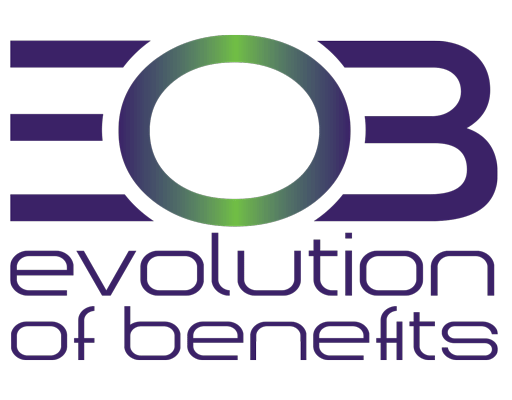HR Brief – August 2021 | Hybrid Work Models, Preventing Turnover Post-pandemic

Considering a Hybrid Work Model
Work flexibility is consistently cited as a post-pandemic trend, and many employers are already introducing hybrid work models in their reopening plans. A hybrid workplace is a flexible model designed to support a workforce of both on-site and remote employees.
A thoughtful hybrid workplace approach combines the best aspects of an organization’s on-site and remote workplaces. To best accommodate a distributed workplace, consider the following tips:
- Set clear expectations for which employees are eligible for hybrid work, and be transparent about any decisions.
- Formalize hybrid work request processes.
- Plan meetings that best accommodate all employees.
- Consider how project management and communication channels can foster company-wide collaboration.
Preventing Turnover Post-pandemic
Turnover is a common occurrence throughout any given year. However, during the COVID-19 pandemic, turnover rates fell dramatically. Now, a significant number of employees are unwilling to return to the status quo that was established pre-pandemic. That’s a major reason why experts predict a “turnover tsunami” coming in the latter half of 2021.
What Employees Want Post-pandemic
Generally, workplace survey data from the past year illuminates some commonalities between worker desires across industries. The following are some of the most coveted changes workers are looking for post-pandemic:
- Flexible work options
- Protection from burnout
- Competitive compensation
- Considerations for Employers
To stay ahead of these trends, employers will need to look inward toward their unique employee populations and determine what’s important to them. This inquiry may include surveying employees to learn about what they are looking for. To help meet the demands of a workforce, employers can consider implementing changes, such as:
- Providing remote or hybrid working arrangements
- Providing flexible scheduling options
- Adopting or expanding employee assistance programs to help with mental health and burnout
- Increasing compensation or bonuses
- Having managers meet more frequently with employees to discuss challenges and concerns openly
Posted on August 2, 2021 by Evolution of Benefits
National Immunization Awareness Month

Vaccines protect against deadly diseases like tuberculosis, measles and the flu. Unfortunately, not everyone can receive the protection of a vaccine (like individuals with compromised immune systems), which makes it even more critical to receive vaccinations if you can. The more people with vaccinations, the harder it is for illnesses to spread.
A vaccination encourages your body to produce antibodies—special agents of the immune system that attack harmful elements, like viruses. These antibodies quickly learn how to fight off a particular disease, like the flu, which can be invaluable if you’re ever exposed to it.
The Centers for Disease Control and Prevention provides a recommended vaccination schedule for infants and children up to age 6, and a separate one for preteens and teens ages 7-18. If you or your child misses a vaccination, ask your doctor about a catch-up schedule.
Take action: View and download the latest National Health Observance newsletter – PDF
Posted on August 2, 2021 by Evolution of Benefits
August’s Live Well Work Well Newsletter – Summer Travel Safety Tips; The Long-term Effects of COVID-19; What’s Better—Caffeine or Sleep?

View and download the latest Live Well, Work Well newsletter
If you’re trading your staycation for a getaway, here are some tips to keep you as safe as possible this summer:
- Get vaccinated. The Centers for Disease Control and Prevention (CDC) recommends delaying travel until you are able to get fully vaccinated.
- Stay domestic. Although Europe continues to open up to fully vaccinated U.S. travelers, the global travel situation is in flux. Some countries are closing their borders again or enforcing strict curfews and mandates.
- Take a road trip. Traveling by car is still safer than flying as it involves less exposure to people.
- Explore the outdoors. Outdoor activities are generally safer. Get outdoorsy or visit small towns to distance yourself from others easily.
- Check travel restrictions. Be flexible and continue checking state and local policies for where you are, along your route and where you are going.
- Keep up with COVID-19 safety precautions. Pack extra masks and hand sanitizer for any outing. Regardless of your vaccination status, you should still wear a mask, avoid crowds and wash your hands frequently when traveling.
If you’re not traveling this summer, use your vacation time to reconnect with friends and family who you’ve missed.

What’s Better—Caffeine or Sleep?
A new study in the Journal of Experimental Psychology tested how caffeine and sleep can impact your day and overall effectiveness at completing tasks. Experts revealed that caffeine can help you stay awake if you’re sleep-deprived, but it likely won’t improve your performance on tasks.
Caffeine can help you get through the midday slump, but it isn’t a substitute for a good night’s sleep. Sleeping is needed to help repair body tissue and cleanse the brain of plaque buildup. Adequate sleep is especially important for people in high-functioning work environments who work long hours, such as medical professionals and truck drivers. Also, not only is coffee a poor substitute for sleep, but overconsumption of caffeine—more than 400 mg daily—can also disrupt sleep.
Posted on August 2, 2021 by Evolution of Benefits
Why Starting Open Enrollment Early In 2021 Is More Important Than Ever

Reports suggest that employees who put off job searches during the pandemic are likely to resume them in earnest this fall. That’s because, among other reasons, workers are now more financially secure than they were a year ago and are willing to leave their employers for more favorable arrangements.
Employers should recognize that they have a massive opportunity if they begin open enrollment efforts early in 2021. Revamping benefit offerings can help demonstrate to employees they are valued and convince top performers who may be seeking a new job to remain.
Tailoring Benefits Options
Employee benefits can be powerful retention tools. However, that’s only true if employees see value in the offerings. That’s why employers need to tailor their benefits options to include perks that employees are looking for.
Employers should keep in mind that nearly 50% of employees are willing to change jobs for benefits that matter to them, such as hybrid working arrangements. That’s why it’s critical for employers to seriously consider speaking with employees about which perks provide the most value for their unique circumstances. Adding or tweaking a few benefits options may be enough to retain some workers.
Moreover, gaining employee feedback ahead of enrollment shows a meaningful interest in employee concerns. It can go a long way to proactively retaining employees by showing them that their quality of life matters.
Reach out to Evolution of Benefits for all your employee communication needs, including enrollment guides, video messaging, presentations and more.
Learn more and take action – view the full newsletter below.
Posted on July 28, 2021 by Evolution of Benefits
Updated CDC Guidelines

CDC Updates Guidance, Says Fully Vaccinated Individuals Should Wear Masks in Some Indoor Settings
The Centers for Disease Control and Prevention (CDC) recently announced updates to its mask guidelines as an emerging variant of COVID-19 known as Delta spreads across the country.
The CDC’s updated guidance now recommends that fully vaccinated individuals wear masks in public indoor settings when in areas with high or substantial transmission of COVID-19. Over 60% of U.S. counties have high or substantial transmission of COVID-19, according to CDC data. The guidelines also recommend masks be worn by all individuals in K-12 schools regardless of vaccination status.
In addition, the CDC encourages community leaders to promote vaccination and mask-wearing as preventive measures against COVID-19.
The CDC has expressed that COVID-19 vaccines are effective at protecting against the Delta variant, and they have been found to reduce the likelihood of severe illness, hospitalization and death.
Next Steps
This guidance from the CDC is not legally binding. As such, it is up to states and local officials to establish their own mask rules.
Employers should continue to monitor updates from local and state health officials. In addition, employers may need to update their own policies to comply with new guidelines.
We will keep you updated on noteworthy developments.
For more information:
Posted on July 28, 2021 by Evolution of Benefits
PCORI Fees Due Aug 2, 2021

PCORI Fee Deadline
The PCORI fee payment for plan years ending in 2020 is due Aug. 2, 2021.
IRS Form 720
Issuers and plan sponsors must report and pay the PCORI fees annually on IRS Form 720 (Quarterly Federal Excise Tax Return). Issuers or plan sponsors that file Form 720 only to report the PCORI fee do not need to file Form 720 for the first, third or fourth quarter of the year.
For more information:
Posted on July 26, 2021 by Evolution of Benefits
President Biden Issues Executive Order to Promote Competition in the American Economy

On July 9, 2021, President Joe Biden issued an executive order to promote competition in the American economy. As stated by the accompanying fact sheet, the order’s objectives include reducing the trend of corporate consolidation, increasing competition and delivering concrete benefits to America’s consumers, workers, farmers and small businesses.
Reducing Barriers to Competition
The order directs over a dozen federal agencies, including the Federal Trade Commission (FTC) to look into unfair competition practices, including, among other things:
• Restrictive covenant and non-compete agreements;
• Prescription drug prices;
• Internet billing and termination practices;
• Airline refunds and cost comparison practices;
• Facilitating the mobility of banking transaction data; and
• Increasing opportunities for small businesses by directing all federal agencies to promote greater competition through their procurement and spending decisions.
Next Steps
The order does not invalidate any of the practices and procedures mentioned above.
However, industry experts recommend that employers take time now to review, at the very minimum, their use of restrictive covenant agreements and evaluate how this order may impact their practices.
For more information:
Posted on July 15, 2021 by Evolution of Benefits
Affordability Percentages Will Increase for 2021

Highlights
For plan years beginning in 2021, the ACA’s affordability contribution percentages are increased slightly to:
• 9.83% under the pay or play rules
• 9.83% under the premium tax credit eligibility rules
• 8.27% under an exemption from the individual mandate
Click here to read and download the latest ACA Compliance Bulletin.
Posted on July 2, 2021 by Evolution of Benefits
HR Compliance Overview: 2021 State Minimum Wage Rates

The current federal minimum wage rate is $7.25 per hour. However, many states have adopted minimum wage rates higher than the federal rate. When the state rate and the federal rate are different, employers must pay their employees the higher rate. The following states have announced new minimum wage rates for 2021:
• Alaska
• Arizona
• Arkansas
• California
• Colorado
• Connecticut
• Delaware
• District of Columbia
• Florida
• Illinois
• Maine
• Maryland
• Massachusetts
• Minnesota
• Missouri
• Montana
• Nevada
• New Jersey
• New Mexico
• New York
• Ohio
• Oregon
• Rhode Island
• South Dakota
• Vermont
• Virginia
• Washington
Open the newsletter for a helpful table “Minimum Wage Rate by State” as well as highlights and important dates.
Click here to view and download the latest HR Compliance Overview
Posted on July 2, 2021 by Evolution of Benefits
July’s Live Well Work Well Newsletter – all about pesticide residue levels of fruits and vegetables

View and download the latest Live Well, Work Well newsletter
EWG’s 2021 Dirty Dozen List Is Here
Nearly 70% of non-organic produce sold in the United States contains pesticide residue, according to the Environmental Working Group (EWG). Every year, the EWG ranks pesticide residue levels of fruits and vegetables based on samples taken by the U.S. Department of Agriculture and the Food and Drug Administration, publishing the results in the Shopper’s Guide to Pesticides in Produce.
Included in the report is a list of the most pesticide-tainted produce, which is known as the “Dirty Dozen.” For 2021, the following were on this list:
- Strawberries
- Spinach
- Kale, collard and mustard greens
- Nectarines
- Apples
- Grapes
- Cherries
- Peaches
- Pears
- Bell and hot peppers
- Celery
- Tomatoes
What Can You Do?
Most Americans aren’t eating enough fruits and vegetables daily. Don’t let the Dirty Dozen scare you away from eating fruits and veggies—all properly handled fresh produce, whether organic or not, is believed to be safe to eat.
To remove any pesticide residue, simply wash your fresh produce under running tap water for 30 seconds. If you’re still uneasy about pesticides, buy the frozen or canned versions of your favorite produce as an alternative option. Frozen fruits and vegetables are just as nutritious for you, so find what works best for your household.
If you have any questions or concerns, talk to your doctor.
Posted on July 1, 2021 by Evolution of Benefits
Client and Employee Resources
![]() The more your employees understand your benefit plans the more they become educated, empowered consumers. The programs you provide will also gain an enhanced value.
The more your employees understand your benefit plans the more they become educated, empowered consumers. The programs you provide will also gain an enhanced value.
As your strategic partners in employee benefits, we can provide multiple avenues of ongoing support, including:
- Employee Meetings (English and Spanish)
- Webcasts
- Payroll Stuffers
- Poster Campaigns
- Newsletters
Recent Posts
- Career Elevator: The Importance of Peer-to-Peer Praise (November) November 27, 2024
- In the Loop – November November 21, 2024
- Benefits and Me: Maximizing Your Open Enrollment (November) November 19, 2024
- HR Brief – OSHA Proposes Heat Injury and Illness Prevention Standard (November) November 14, 2024
- Mental Health Minute (November) November 7, 2024
- American Diabetes Month (November) November 6, 2024
- Benefits Buzz – Final Forms and Instructions for 2024 ACA Reporting Now Available November 4, 2024
- Live Well, Work Well – Fall Into Mindfulness (November) November 4, 2024
- Recipe of the Month – Beef and Bean Chile Verde (November) November 3, 2024
- Compliance Tracker – October November 1, 2024
Newsletter and Article Categories
E-Verify is a web-based system that allows enrolled employers to confirm the eligibility of their employees to work in the United States. Click the image below to begin.




















